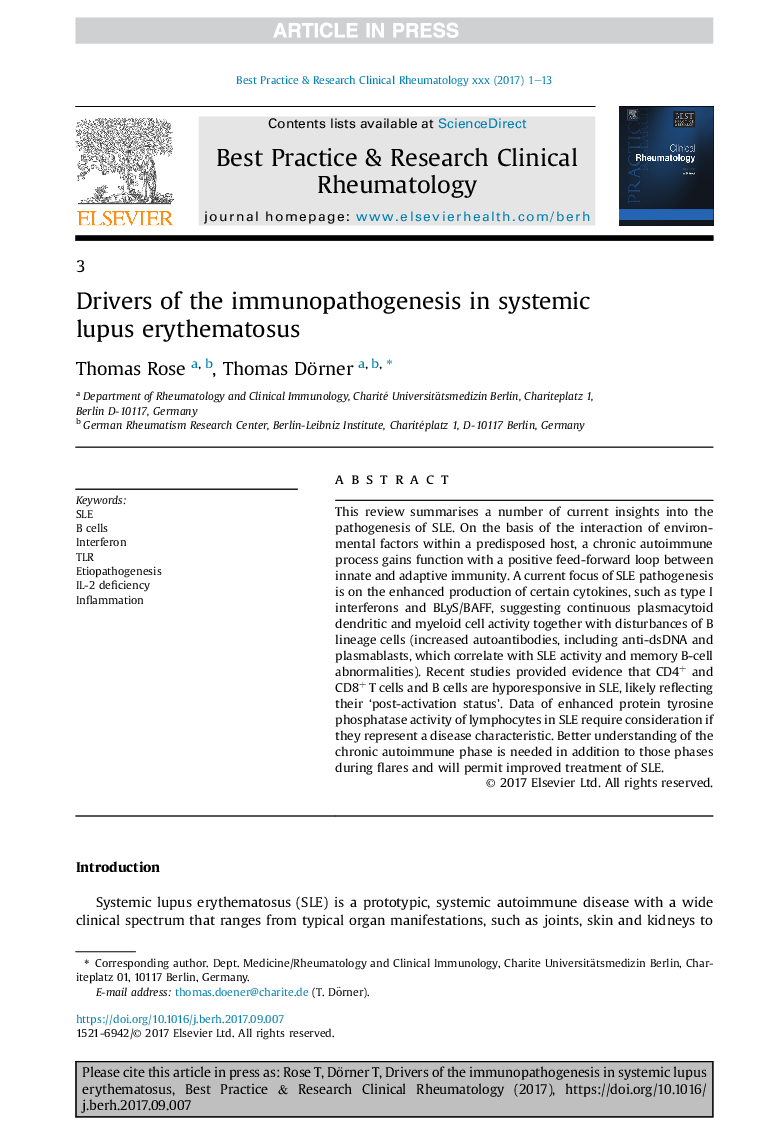| Article ID | Journal | Published Year | Pages | File Type |
|---|---|---|---|---|
| 8736570 | Best Practice & Research Clinical Rheumatology | 2017 | 13 Pages |
Abstract
This review summarises a number of current insights into the pathogenesis of SLE. On the basis of the interaction of environmental factors within a predisposed host, a chronic autoimmune process gains function with a positive feed-forward loop between innate and adaptive immunity. A current focus of SLE pathogenesis is on the enhanced production of certain cytokines, such as type I interferons and BLyS/BAFF, suggesting continuous plasmacytoid dendritic and myeloid cell activity together with disturbances of B lineage cells (increased autoantibodies, including anti-dsDNA and plasmablasts, which correlate with SLE activity and memory B-cell abnormalities). Recent studies provided evidence that CD4+ and CD8+ T cells and B cells are hyporesponsive in SLE, likely reflecting their 'post-activation status'. Data of enhanced protein tyrosine phosphatase activity of lymphocytes in SLE require consideration if they represent a disease characteristic. Better understanding of the chronic autoimmune phase is needed in addition to those phases during flares and will permit improved treatment of SLE.
Related Topics
Health Sciences
Medicine and Dentistry
Immunology, Allergology and Rheumatology
Authors
Thomas Rose, Thomas Dörner,
